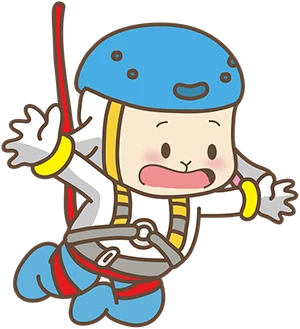
"If you know the enemy and know yourself, you need not fear the result of a hundred battles. If you know yourself but not the enemy, you will also suffer a defeat for every victory gained. You will succumb in every battle if you know neither the enemy nor yourself." (Sun Tzu)
Sun Tzu was a Chinese politician and general. Considered the strategic founder of the art of war.
Medicine has adopted the general scientific approach, which is also prevalent in other sciences. However, medicine does not have an independent philosophy necessary for a profession that combines life sciences with exact sciences. The need for a philosophy unique to medical science stems from the enormous complexity of the human body and the fact that chronic morbidity has become the epidemic of the 21st century.
This article describes the urgent need to formulate a philosophy of medical sciences. The lack of philosophy can be compared to the lack of strategy in a war against a fearless enemy. Failure is guaranteed! Sun Tzu's quote only highlights the need for a separate philosophy of medical science.
My journey in search of the philosophy of medicine.
To the question of whether modern medicine has a philosophy, I arrived only after many years on the verge of death and many treatments in Western and traditional Chinese medicine, which is more holistic and emphasizes the energetic body.
- Most of my sessions with Western doctors ended with an uncomfortable feeling! They claimed that I was cured; the virus in my liver was indeed no longer identifiable. In practice, I was dying of complications from the disease.
- Later, I realized a doctor couldn't concentrate on a seriously ill patient with 20 waiting for them in the reception room. The time allocated to the patient ranged from a few minutes to a maximum of half an hour. I did not receive dietary and lifestyle recommendations or treatment. Modern medicine does not know how to treat an injured liver. Treatment methods are all part of alternative medicine; doctors often consider it inferior.
I appreciate doctors for their dedication, diligence, and exhausting work.
- I must emphasize that doctors work very hard. To their credit, their life expectancy is, on average, no higher than that of their patients. Thus, they apply the same medicine that they recommend to their patients to themselves.
Because of the abundance of medical information, doctors learn to think and act in a way that leaves no room for imagination.
- The main problem, in my view, is that doctors learn to think in a strict way that suppresses creative thought, except in the technological field, where there is a lot of creativity.
Medicine knows how to diagnose and treat most chronic diseases but not how to cure them!
- The explanation is simple: treatment is mostly symptomatic because the causes of various chronic conditions are not fully known, involve the body and mind, and are very complex to diagnose and treat.
Introduction to philosophy of medicine.
Medicine adopted the general scientific method but did not create its independent doctrine, as one might expect. Is there a distinctive philosophy of medical science today? The answer is "No."
Links: Does the philosophy of medicine exist? (Theoretical medicine) | Philosophy of medicine (Wikipedia) |
- Modern medicine has extensive literature, procedures, methods, and practices, but these cannot be considered a philosophy of medicine! I was surprised to find that modern conventional medicine has no independent philosophy.
- Medicine has advanced miraculously at the technological level. Still, the failures (which are not often discussed) in chronic diseases, autoimmune diseases, cancer, mental disorders, addictions, and more can be directly attributed to the lack of an independent philosophy of medical sciences.
While the achievements of medicine are discussed, the weaknesses of medicine are hardly mentioned. While science challenges itself regularly, medicine is pretty much bogged down in achievements and doesn't investigate the causes of disappointments.
Doctors are often perceived as know-it-alls. The fact that modern medicine treats mainly the symptoms of chronic diseases and not the causes of the disease usually does not reach the public's consciousness, and even if it does, there is a fear of disobeying doctors and trying methods of treatment in medicine for self-healing.
The philosophy of medicine serves as a "compass" that defines the borders of what is possible and reasonable.
The philosophy of medicine was mistakenly seen as a subspecialty of philosophy rather than medicine.
- Medical science has many methodologies, therapeutic protocols, extensive literature, innovative technologies, procedures, principles, and guidelines, but this is not philosophy! I believe the lack of philosophy explains modern medicine's (hidden) failures.
- Paradoxically, traditional Chinese and Indian medicine developed medical philosophy thousands of years ago without knowledge of anatomy, physiology, or chemistry. Parts of this philosophy are still helpful today. However, they are outdated and do not qualify as standard medicine in the 21st century. However, at the level of philosophical thinking and balance between body, mind, and spirit, they were very advanced for their time.
Is it desirable that the philosophy of medicine be a sub-branch of philosophy (as it is today) or a sub-branch of medicine?
- In all other branches of science, you will find a clear answer. Most philosophical science theories have been carried out by scientists from the same field. The ethics of medicine is the only case in which there is room for philosophers to formulate ethics and, even then, with medical experts.
- Examples in the exact sciences are the most common. I always prefer to give the most concrete example from the science of mathematics, which is the peak of accuracy with rigid rules. In the 1920s, the well-known mathematician David Hilbert asked questions about the philosophy of mathematics. He believed that the questions had simple answers. Oddly enough, the proofs of the mathematician-philosopher Kurt Godel (Known as mathematical incompleteness) proved that because of logical issues, there are factual statements that cannot be proven and vice versa, no matter how many axioms you add. Alan Turing then extended the proof of computer science to a problem known as the halting problem.
Like other scientists, doctors and medical experts must write the philosophy of medicine. Philosophers can, of course, assist them.
Integrating modern medicine and self-healing functional medicine is vital to achieving optimal healthcare.
The in-depth analysis points to a mirror image of modern medicine's weaknesses and strengths compared to self-healing functional medicine. Thus, integration between both is requested.
Link: Conventional vs. Self-healing Medicine — SWOT Analysis.
Is there a need for a unified philosophy of medical science? The answer is definitely "YES." The medical field in the 21st century is a war zone dictated by modern lifestyle. Would the human race allow itself to enter a brutal war without a strategy? I guess not!
- The confusion between symptoms, causes, and catalysts, which leads to fighting the symptoms, is, in my opinion, part of this trend:" medical philosophy is a field for philosophers." (Symptomatic treatments cannot cure the patient, as they do not eliminate the causes of the disease.)
Advanced biochemistry and other technological instruments do not necessarily reveal all the secrets of the body, mind, and spirit. To know the correct answers, we must understand what we are searching for; in other words, it is philosophy.
All exact sciences have a philosophy, usually supported by mathematical formulas.
Medicine combines life sciences and exact sciences but has no independent philosophy!
- If you search (Kurt Gudel or Alan Turing), you will find that even mathematics and computer science have a philosophy. Physics and chemistry have well-founded theories and profound philosophical questions, often unanswered.
- The best-known formula in the world is probably energy equal to mass, double the speed of light squared. As early as 1905, Albert Einstein established the connection between energy and mass. (Material) The most recent theories of modern physics (string theory) show a direct relationship between matter and energy. Only medicine still insists on a mechanistic conception of the human body!
- Paradoxically, Chinese and Indian medicine, with no knowledge of anatomy, physiology, or chemistry, developed a medical philosophy thousands of years ago, some of which are still helpful today. They are outdated and do not qualify as standard medicine in the 21st century. But at the level of philosophical thinking and balance between body, mind & soul, they were very advanced for their time.
Medicine is integrated into many fields, so the philosophical questions it raises are many and more profound.
Some illustrations of topics that the philosophy of medicine may deal with.
The philosophy of medicine has enormous scientific and economic significance. If you don't know what you're looking for and its limits, you'll make mistakes that cost a lot of money and suffering. I've compiled some critical philosophical questions just for illustration. There are many more questions.
Can any acquired disease be cured?
- By complying with fundamental requirements (mental & physical) — All chronic acquired (non-genetic) diseases are curable!
Can medications cure chronic diseases or only alleviate their symptoms?
- The question may sound simplistic, but it is a question of basic logic: When the causes of disease are not fully known, diseases cannot be cured just by treating their symptoms.
Are cysts and tumors and their location the result of chance?
- Tumors, cysts, and polyps are symptoms of prolonged inflammatory processes. Thus, surgical removal often does not solve the problem in the long run.
The connection between Body, Mind, and spirit.
- Is the body just a physical entity or also a physical-energetic combination? The science of physics recognizes a duality between matter and energy. Is this also valid for medical science? What is the connection between body, mind, and spirit? How does it work, and how is it manifested?
Does the body operate randomly? (Immense implications)
- Is morbidity the result of bad luck?
Is there a common denominator for all types of addictions?
- Are addictions just biochemical phenomena, or do they have other hidden dimensions?
Why have diseases like diabetes only erupted in the last hundred years?
- Until 100 years ago, diabetes was a rare disease!
Why, despite enormous efforts and advanced technology, has there been no cure for cancer?
- Cancer has been known in medicine for thousands of years! Despite supreme efforts and vast sums of money, research by the best minds has not succeeded in eradicating the disease.
Are all calories the same?
- The answer is no! Not all calories are equal because their routing in the human body differs from person to person and even varies concerning age and state of health.
Apart from the impressive achievements, does modern medicine also have weaknesses?
Link: The top 10 medical advances in history. Author: Peter Hogg. (June 2021)
There are other lists, most of them very similar. I believe the discovery of DNA should have been included in the honorable list. At the same time, what is not included in the list is especially interesting. The development of medicine in the technological and pharmaceutical channels is particularly striking, but you will not find outstanding achievements in eradicating chronic diseases.
- VACCINES (1796)
- ANAESTHESIA (1846)
- GERM THEORY (1861)
- MEDICAL IMAGING (1895)
- ANTIBIOTICS (1928)
- ORGAN TRANSPLANTS (1954)
- ANTIVIRAL DRUGS (1960S)
- STEM CELL THERAPY (1970S)
- IMMUNOTHERAPY (1970S)
- ARTIFICIAL INTELLIGENCE (21ST CENTURY)
The most glaring weakness of medical science is precisely on the conceptual level—modern medicine has no guiding philosophy. Therefore, it advances only through new diagnostic and treatment technologies, but chronic morbidity has broken all records!
Summary and Conclusions.
Is there a unified philosophy of modern medical science today? Surprisingly, the answer is "No."
- Medicine has extensive professional literature, history documentation, many methods, treatment protocols, and advanced technologies, but these are not a philosophy but, at best, just a tactic.
- Is there a need for a unified philosophy of medical science? The answer is definitely "yes."
- The medical field in the 21st century is a war zone dictated by modern lifestyle. Would the human race allow itself to enter a problematic war without a strategy? I guess not!
The philosophy of medicine must be a sub-branch of medicine, not philosophy as it is today. The philosophy of medicine must integrate conventional medicine with medicine for self-healing.
Artificial intelligence excites the imagination, and AI-based medical ventures pop up like mushrooms after rain without understanding the limitations of existing AI (first generation out of four). At this stage, AI mainly processes a lot of information and presents it in simple language while identifying hidden patterns. The achievement is enormous, but it is not a substitute for philosophy. At this point, AI still lacks the capacity for curiosity and intuition! Imagination and creativity are critical to the incredible complexity of the human body and mind. Link: Artificial intelligence (AI) can be developed on four levels.
Establishing a philosophy of modern medicine is the most pressing challenge of medicine.

"If you know the enemy and know yourself, you need not fear the result of a hundred battles. If you know yourself but not the enemy, you will also suffer a defeat for every victory gained. You will succumb in every battle if you know neither the enemy nor yourself." (Sun Tzu) Sun Tzu was a Chinese politician and general. Considered the strategic founder of the art of war.


